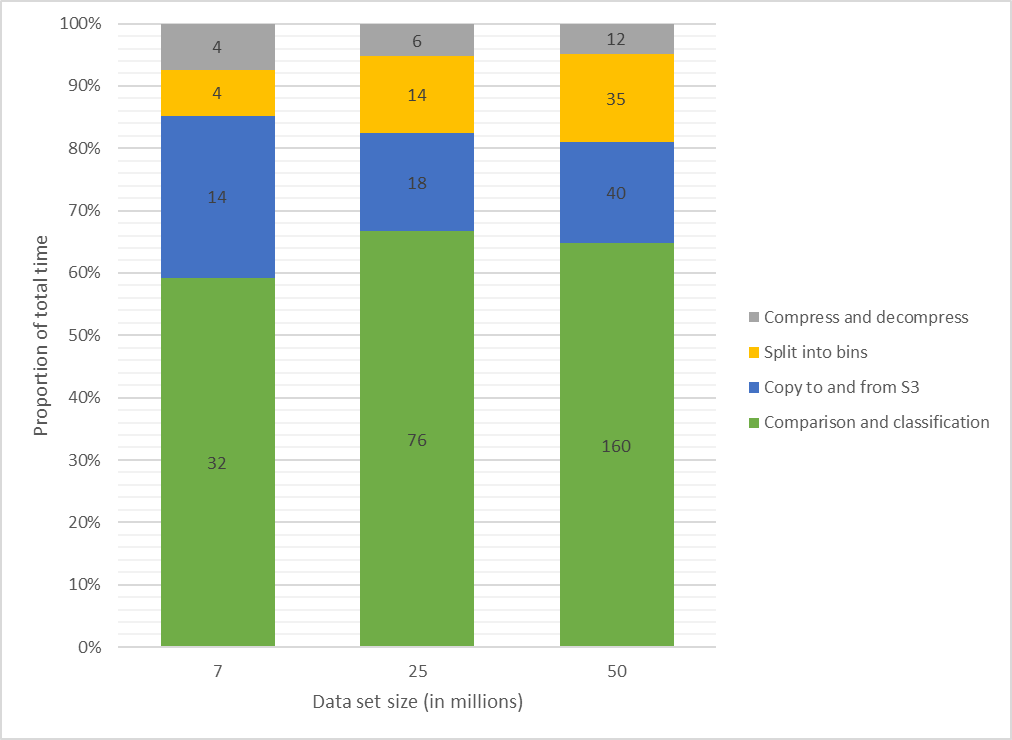Difference between revisions of "Template:Article of the week"
Shawndouglas (talk | contribs) (Updated article of the week text) |
Shawndouglas (talk | contribs) (Updated article of the week text) |
||
| Line 1: | Line 1: | ||
<div style="float: left; margin: 0.5em 0.9em 0.4em 0em;">[[File:Fig9 Brown JMIRMedInfo2020 8-9.png|240px]]</div> | |||
'''"[[Journal: | '''"[[Journal:Secure record linkage of large health data sets: Evaluation of a hybrid cloud model|Secure record linkage of large health data sets: Evaluation of a hybrid cloud model]]"''' | ||
The [[Linked data|linking]] of administrative data across agencies provides the capability to investigate many health and social issues, with the potential to deliver significant public benefit. Despite its advantages, the use of [[cloud computing]] resources for linkage purposes is scarce, with the storage of identifiable [[information]] on cloud infrastructure assessed as high-risk by data custodians. This study aims to present a model for record linkage that utilizes cloud computing capabilities while assuring custodians that identifiable data sets remain secure and local. A new hybrid cloud model was developed, including [[Information privacy|privacy-preserving]] record linkage techniques and container-based batch processing. An evaluation of this model was conducted with a prototype implementation using large synthetic data sets representative of administrative health data. ('''[[Journal:Secure record linkage of large health data sets: Evaluation of a hybrid cloud model|Full article...]]''')<br /> | |||
<br /> | <br /> | ||
''Recently featured'': | ''Recently featured'': | ||
{{flowlist | | {{flowlist | | ||
* [[Journal:Risk assessment for scientific data|Risk assessment for scientific data]] | |||
* [[Journal:Methods for quantification of cannabinoids: A narrative review|Methods for quantification of cannabinoids: A narrative review]] | * [[Journal:Methods for quantification of cannabinoids: A narrative review|Methods for quantification of cannabinoids: A narrative review]] | ||
* [[Journal:Utilizing connectivity and data management systems for effective quality management and regulatory compliance in point-of-care testing|Utilizing connectivity and data management systems for effective quality management and regulatory compliance in point-of-care testing]] | * [[Journal:Utilizing connectivity and data management systems for effective quality management and regulatory compliance in point-of-care testing|Utilizing connectivity and data management systems for effective quality management and regulatory compliance in point-of-care testing]] | ||
}} | }} | ||
Revision as of 18:03, 15 November 2021
"Secure record linkage of large health data sets: Evaluation of a hybrid cloud model"
The linking of administrative data across agencies provides the capability to investigate many health and social issues, with the potential to deliver significant public benefit. Despite its advantages, the use of cloud computing resources for linkage purposes is scarce, with the storage of identifiable information on cloud infrastructure assessed as high-risk by data custodians. This study aims to present a model for record linkage that utilizes cloud computing capabilities while assuring custodians that identifiable data sets remain secure and local. A new hybrid cloud model was developed, including privacy-preserving record linkage techniques and container-based batch processing. An evaluation of this model was conducted with a prototype implementation using large synthetic data sets representative of administrative health data. (Full article...)
Recently featured:










